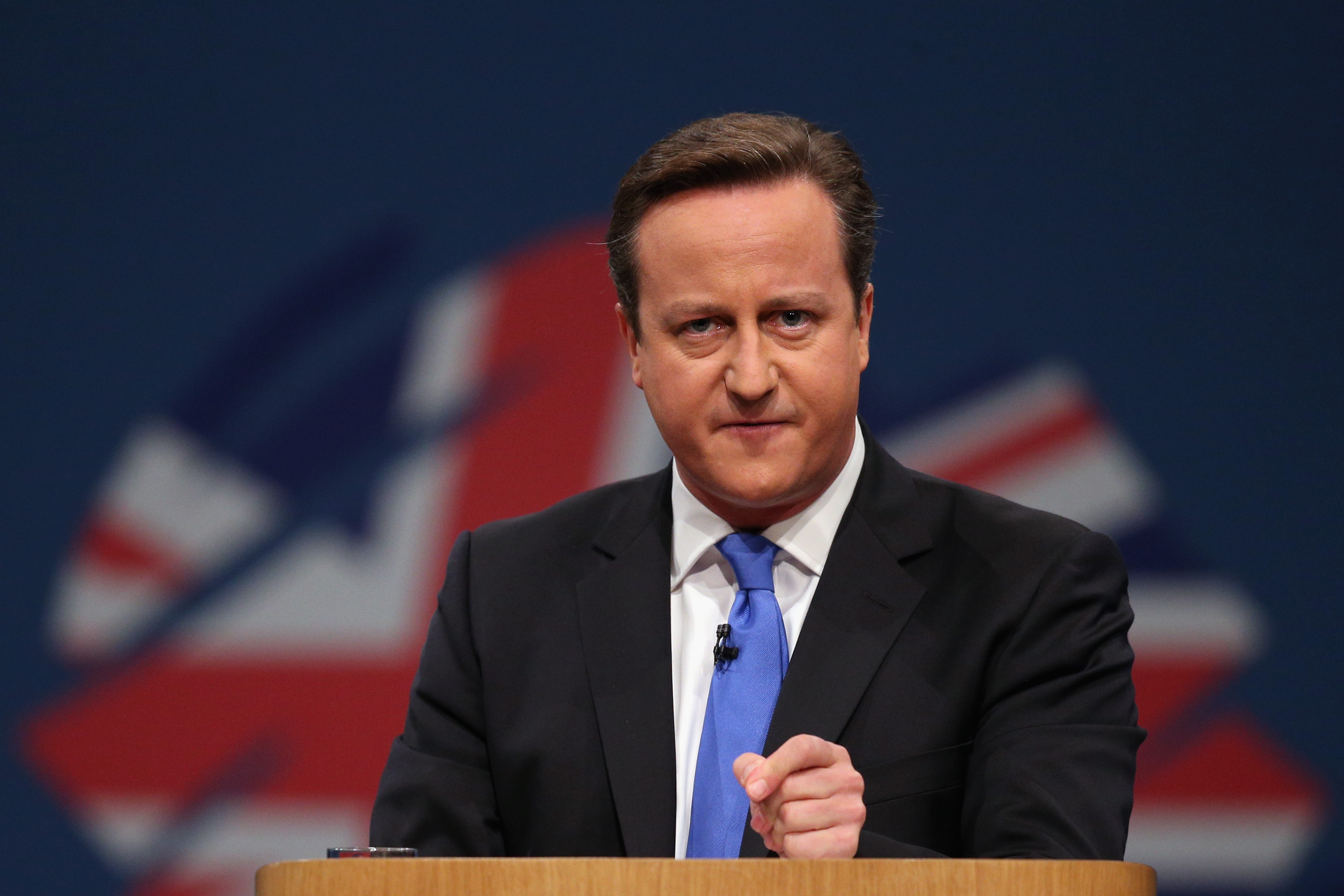A 'Brexit' wouldn't be the economic calamity you've been warned about
Why the United Kingdom just should leave the EU


A free daily email with the biggest news stories of the day – and the best features from TheWeek.com
You are now subscribed
Your newsletter sign-up was successful
The Republican and Democratic caucuses aren't the only elections going on in the world right now.
The United Kingdom is heading towards a referendum on entering or leaving the European Union, an election pledge by David Cameron. For Cameron, it was a political ploy. British euroskeptics are an important force, but they don't trust the Conservatives, and might not have normally bothered to vote. By making this pledge, the Conservative prime minister ensured they turn out and vote for the Conservatives, without having to concede anything. He's also probably betting that the referendum will fail, because Cameron doesn't want his country to leave the EU. And indeed the idea of the country withdrawing from the European Union — sometimes referred to as Brexit — has all of the world terrified.
It's very unlikely Brexit will happen. The polls are already tepid, and if one thing is certain, it's that as the campaign gets going, the British public will be treated to an orgy of scare-mongering the likes of which are rarely seen. All of the country's elites abhor the idea of Brexit. And voters have taught us that while they like to tweak the noses of the elites, in the end, they balk at radical change. Greece would only vote Syriza in once the country pledged not to leave the euro (which was the whole point of voting in a populist party to begin with). Scots threw out the Labour bums and replaced them with Scottish National Party politicians in a landslide, a political upheaval — but then voters still rejected Scottish independence.
The Week
Escape your echo chamber. Get the facts behind the news, plus analysis from multiple perspectives.

Sign up for The Week's Free Newsletters
From our morning news briefing to a weekly Good News Newsletter, get the best of The Week delivered directly to your inbox.
From our morning news briefing to a weekly Good News Newsletter, get the best of The Week delivered directly to your inbox.
But the United Kingdom should still leave the EU.
There are a few arguments in favor of the country staying within the EU. One is that the U.K. will still be affected by EU rules, but without having influence on them. Its exporters will still have to abide by EU product rules, for example. The U.K. will have to negotiate trade deals on its own, rather than as part of the EU bloc, which has the biggest GDP of any economic bloc on Earth. And many darkly warn that countless companies and jobs would leave the country if it stopped being part of the EU.
But none of this makes sense. Yes, British exporters will have to abide by EU rules if they want to export to the EU. But this is also true of American exporters, and Chinese exporters, and Russian exporters. It's basically unknowable whether the U.K. would have more clout in trade deals inside or outside the EU, since it's not like the nation runs the EU's trade negotiation process as it is; it is one voice among 27. Arguably the country might even have more clout, since the way it basically works now is that EU bureaucrats run the show and nations have no say.
And finally, the idea that companies will leave the U.K. just because it would be outside the EU is fantasy. The U.K. has enormous competitive advantages due to its advanced infrastructure and the rule of law, not to mention a relatively benign fiscal and regulatory environment compared to the rest of Europe. None of this would be changed by the U.K. leaving the EU. The country's status as the financial capital of Europe, in particular, owes a lot more to history and to the English language than to EU integration.
A free daily email with the biggest news stories of the day – and the best features from TheWeek.com
In fact, leaving the fiscal and regulatory rules of the union could be a reason for the U.K. to leave the EU. Some estimates say that rescinding EU rules and regulations would be worth several points of GDP, although these things are hard to measure. And having its own financial regulatory system might also be a boon to the country.
The two Western European countries that never joined the EU, Norway and Switzerland, happen to be its most prosperous. Opponents of Brexit seem to act as if leaving the EU would mean breaking up all relations with the EU. But Switzerland and Norway enjoy very good economic and political relations with the rest of Europe.
So the economic case for the U.K. leaving the EU is actually strong. But there are more serious, structural problems with EU membership. The EU project is in many ways a noble one, and has had some significant accomplishments to its name, but its rejection of democracy and accountability has rendered it morally bankrupt. The EU project has beclowned itself time and time again. EU elites have demonstrated their own incompetence and untrustworthiness thanks to the euro project, which has mired the continent in economic crisis — and they have responded to the crisis by admitting nothing, apologizing for nothing, and grabbing even more power. National sovereignty matters. Nations have the right to set their own rules, and the EU needs a swift rebuke. The British people should give it to them.
Pascal-Emmanuel Gobry is a writer and fellow at the Ethics and Public Policy Center. His writing has appeared at Forbes, The Atlantic, First Things, Commentary Magazine, The Daily Beast, The Federalist, Quartz, and other places. He lives in Paris with his beloved wife and daughter.
